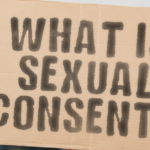Is It a Crime to Lie About Your Age for Sex?

Getting older isn’t easy, particularly when it narrows your prospects in the dating game.
It’s understandable that many are tempted to sneakily lower their age on Tinder or to tell a little white lie on a date, particularly if there’s a chance of things getting hot and heavy.
But does lying about your age raise an issue of consent?
Here’s a summary of the law.
Sexual consent laws in New South Wales
The absence of sexual consent can raise criminal liability for a number of offences in New South Wales, including:
- Sexual assault, which is also known as sexual intercourse without consent,
- Sexual touching (known prior to December 2018 as indecent assault), and
- Sexual act (known prior to December 2018 as act of indecency).
Section 61HI of the Crimes Act 1900 (NSW) sets out that a person consents to sexual activity if he or she “freely and voluntarily agrees” to the activity.
Section 61HJ of the Act outlines a variety of circumstances where the law recognises that a person did not consent, including if a person:
- Does not say or do anything to communicate consent;
- Does not have the capacity to consent;
- Is so affected by alcohol or another drug/s as to be incapable of consenting;
- Is unconscious or asleep;
- Participates because of force, fear of force or harm of any kind to him or her, another person, an animal or property, regardless of whether the feared force or conduct actually occurred, or was a single act or an ongoing pattern of conduct;
- Participates because of coercion, blackmail or intimidation regardless of when it occurred or whether it was a single act or an ongoing pattern of conduct;
- Participates because he or she, or another person, is unlawfully detained;
- Participates because he or she is overborne by the abuse of a relationship of authority, trust or dependence;
- Participates because of a mistaken belief about the nature or purpose of the sexual activity, including whether it is for health, hygienic or cosmetic purposes;
- Participates because of a mistaken belief about the identity of the other person or that they are married; or
- Participates because of a fraudulent inducement.
Does lying about your age vitiate consent?
There are two provisions under section 61HJ of the Act which may apply when a person lies about their age, these include where a person:
- Participates because of a mistaken belief about the identity of the other person -section 61HJ(1)(j); or
- Participates because of a fraudulent inducement – section 61HJ(1)(k).
Vitiating consent on the basis of a mistaken belief about the identity of the other person has tended to be narrowly construed as the complainant believing that they were consenting to sexual activity with one person, when it was somebody else. Think that infamous scene in Revenge of the Nerds.
Situations where a person participated because of fraudulent inducement is much more broadly applicable, involving where a person knowingly misleads another about sexual activity. An example of this would be ‘stealthing’ where a man says he is going to put on a condom for sex and then does not do so. This could amount to a fraudulent inducement if the partner only agreed to sex with a condom, not condomless sex.
A note is provided under s61HJ stating that “fraudulent inducement” does not include a misrepresentation about a person’s income, wealth or feelings. It’s notable that “age” is not mentioned on this list, but there are good reasons to believe lying about your age would not amount to a fraudulent inducement.
In the second reading speech for the Crimes Legislation Amendment (Sexual Consent Reforms) Bill 2021, which introduced section 61HJ(1)(k), Mark Speakman MP noted that:
Fraudulent inducement in the context of this provision would … typically not extend to or capture misrepresentations about employment, status or marital status. Those misrepresentations would, in ordinary circumstances, be regarded as “mere puff”.
Pick-up lines or white lies, without more, are unlikely to satisfy the legal criteria for fraud, and would be unlikely to satisfy the causative element of the provision. That includes claims like “it will be the best sex you will ever have” or “I’m rich”, “I own this bar”, “I can bench press 300 kilograms” or “I’m single”. While some of the misrepresentations are immoral, it is not the intention of the bill to criminalise conduct that is not sufficiently serious or closely connected to the complainant’s consent as to warrant attributing criminal responsibility. Only very serious deceit is intended to fall within the scope of this section.
Whilst, again, age is not explicitly mentioned, it seems highly likely that this fits within the scope of “mere puff” so that it falls outside the scope of fraudulent misrepresentation. As such, lying about your age to a sexual partner is unlikely in most circumstances to raise an issue of lack of consent.
What if a child lies about his or her age?
Much more serious consequences arise in situations where the person you are having sex with claims to be over the age of consent when they are not.
The age of consent is the age in which the law recognises a minor can consent to sexual activity. The age of consent is generally 16 years old in NSW, however this is raised to 18 years old if a relationship of “special care” exists.
Engaging in sexual activity with a person under the age of consent could give rise to a number of serious criminal offences under the Crimes Act 1900 (NSW). Just focusing on the offences under Section 66C of the Crimes Act 1900, these could include offences for:
- Sexual intercourse with a child who is of or above the age of 10 years and under the age of 14 years, which carries a maximum penalty of imprisonment for 16 years.
- Sexual intercourse with a child who is of or above the age of 10 years and under the age of 14 years in circumstances of aggravation, which carries a maximum penalty of imprisonment for 20 years.
- Sexual intercourse with a child who is of or above the age of 14 years and under the age of 16 years, which carries a maximum penalty of imprisonment for 10 years.
- Sexual intercourse with a child who is of or above the age of 14 years and under the age of 16 years in circumstances of aggravation, which carries a maximum penalty of imprisonment for 12 years.
“Circumstances of aggravation” includes circumstances in which:
- At the time of, or immediately before or after, the commission of the offence, the accused person intentionally or recklessly inflicts actual bodily harm on the complainant or any other person who is present or nearby, or
- At the time of, or immediately before or after, the commission of the offence, the accused person threatens to inflict actual bodily harm on the complainant or any other person who is present or nearby by means of an offensive weapon or instrument, or
- The accused person is in the company of another person or persons, or
- The complainant is (whether generally or at the time of the commission of the offence) under the authority of the accused person, or
- The complainant has a serious physical disability, or
- The complainant has a cognitive impairment, or
- The accused person took advantage of the complainant being under the influence of alcohol or a drug in order to commit the offence, or
- The accused person deprives the complainant of his or her liberty for a period before or after the commission of the offence, or
- The accused person breaks and enters into any dwelling-house or other building with the intention of committing the offence or any other serious indictable offence.
Under section 80AG of the Crimes Act 1900 (NSW), it is a defence to the charges above where you and the complainant were of ‘similar age’, which means the complainant was at least 14 years of age and you were no more than 2 years older.
The High Court case of CTM v The Queen [2008] HCA 25 recognised that the defence of “honest and reasonable mistake” can arise if a person is charged under section 66C(3) of the Act, encompassing situations where a person has sexual intercourse with a child aged between 14 and 16 years.
An honest and reasonable mistake defence requires there to be evidence that you had a reasonable, but mistaken belief that the child you engaged in sexual intercourse with was over the age of consent.
This is likely to arise if:
- The complainant admits they misled the you about their age.
- You relied on positive evidence of age, such as an ID that had been forged without your knowledge, to form a belief about a person’s age.
- That you were led to believe the complainant’s age based on evidence from others who would have accurate knowledge, such as the parents of the complainant telling you their age.
Once an honest and reasonable mistake defence is raised to the standard of reasonable possibility it is for the prosecution to disprove this defence beyond reasonable doubt or the accused will be acquitted of the charge.
Any updates in NSW Legislation?
Up until 2003, it was an offence for a male to induce a female to engage in sexual activity by “false representation or fraudulent means” — thereby meaning that it was illegal for a man to coerce, lie, or deceive to persuade a female to have sexual intercourse or perform sexual acts with them.
Although the wording is ambiguous and could be considered too broad of a scope to specify whether lying about age when it comes to having sex, it can be interpreted by the New South Wales Court in different ways regarding deception. However, the section in the Crimes Act 1900 (NSW) has since been repealed, leaving a huge hole in the legislation regarding lying about age.
With the legislation noticeably absent since 2003, the NSW Law Reform Commission has had to brainstorm ideas on addressing the legislative concerns. In September 2020, the Commission published a report, ‘Consent in relation to sexual offences’, that introduced the need for the defendant to obtain ‘affirmative consent’ for sexual activity. This can potentially reduce the defendant’s liability if a person lies about their age, as they obtained affirmative consent before partaking in any actions.
Charged with a sexual offence?
If you have been accused of a sexual offence, call Sydney Criminal Lawyers anytime on (02) 9261 8881 and let our team of experienced criminal defence lawyers advise you of your options, the best way forward and fight to have the charges withdrawn or thrown out of court.
Receive all of our articles weekly
Related Articles
RELATED LEGISLATION
- Section 61HI Crimes Act 1900 | Consent Generally
- Section 61HJ Crimes Act 1900 | Circumstances in Which There is No Consent
- Section 66C Crimes Act 1900 | Sexual Intercourse Child Between 10 and 16
- Section 61i Crimes Act 1900 | Sexual Assault
- Section 61KC Crimes Act 1900 | Sexual Touching
- Section 61KE Crimes Act 1900 | Sexual Act






